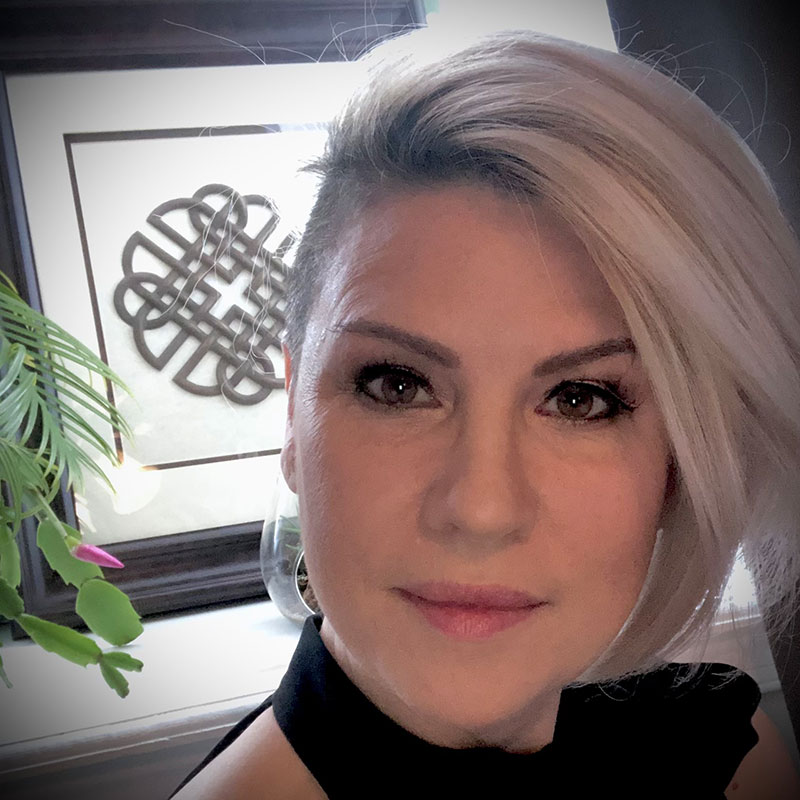"Whatever your eye falls on – for it will fall on what you love – will lead you to the questions of your life, the questions that are incumbent upon you to answer, because that is how the mind works in concert with the eye. The things of this world draw us where we need to go."
- Mary Rose O’Reilley

About Me
I am a Telehealth Therapist located in Philadelphia. In my private practice, I provide short-term and long-term, evidence-based psychotherapy for individuals suffering from a wide range of disorders and interpersonal difficulties. I have specific expertise in substance use disorders, traumatic stress disorders/PTSD, issues with attachment, relationship conflicts and codependency. I also have experience treating anxiety disorders, grief and depression.
Education, Training & Experience
I earned my Post Graduate Degree in Mental Health Counseling from the University of Pennsylvania, where I received extensive training in evidence-based treatments for a range of disorders across the lifespan. I have a passion for treating survivors of trauma, as well as working with adults with Substance Use Disorders.
My approach is warm, personalized, and evidence-based.
I work with clients to set personalized, achievable goals, find better ways to cope and manage stressful situations, and build on individual strengths. We will develop our treatment plan as a team and move at a pace that feels right for you.
I have expertise in Psychodynamic Therapy, Cognitive Behavioral Therapy (CBT) and Attachment Theory, all approaches shown to be highly effective in the research literature. I also have advanced training in Prolonged Exposure, Cognitive Processing Therapy and COPE used with Post Traumatic Stress Disorders (PTSD) and Substance Use Disorders. I frequently combine these approaches with other evidence-based techniques to provide treatment that is individually-tailored to each client’s needs. These include emotion-focused therapy, mindfulness techniques, assertiveness training, or other approaches.
The duration of treatment can vary for each person. I aim to provide efficient relief from distress of symptoms, and to teach clients to “become their own therapist,” as I believe this best prepares individuals to manage future stressful situations. Many problems can be effectively addressed in a short-term treatment (10-20 sessions). However, for enduring problems of a longstanding nature, longer-term treatment may be necessary to provide lasting gains.
Cognitive Behavioral Therapy
Cognitive Behavioral Therapy (CBT) focuses on thinking errors that can cause unnecessary emotional and behavioral problems. In CBT, patients learn techniques to recognize and change these patterns of problematic thinking in order to improve mood and overall functioning. CBT is a time-limited, problem-focused and evidence-based form of psychotherapy that is adapted for the needs of each individual.
Psychodynamic Therapy
Psychodynamic theory arises from the ideas that humans are often driven by unconscious motivations and that adult personality and relationships are often the result of childhood experiences. Emphasis is placed on the influence of past experience on the development of current behaviour, mediated in part through unconscious processes. It is influenced by object relations theory, that is, by the idea that previous relationships leave lasting traces which affect self-esteem and may result in maladaptive patterns of behaviours.
Attachment Theory
Attachment theory focuses on the relationships and bonds between people, particularly long-term relationships, including those between a parent and child and between romantic partners. Research suggests that failure to form secure attachments early in life can have a negative impact on behavior in later childhood and throughout a person's life span.
Licenses & Credentials
Licensed Professional Counselor
Prolonged Exposure Therapist
Cognitive Processing Therapist
Certified Advanced Alcohol and Drug Counselor
Professional Memberships
International Associate of Trauma Professionals (IATP)
Psychoanalytic Center of Philadelphia (PCOP)
